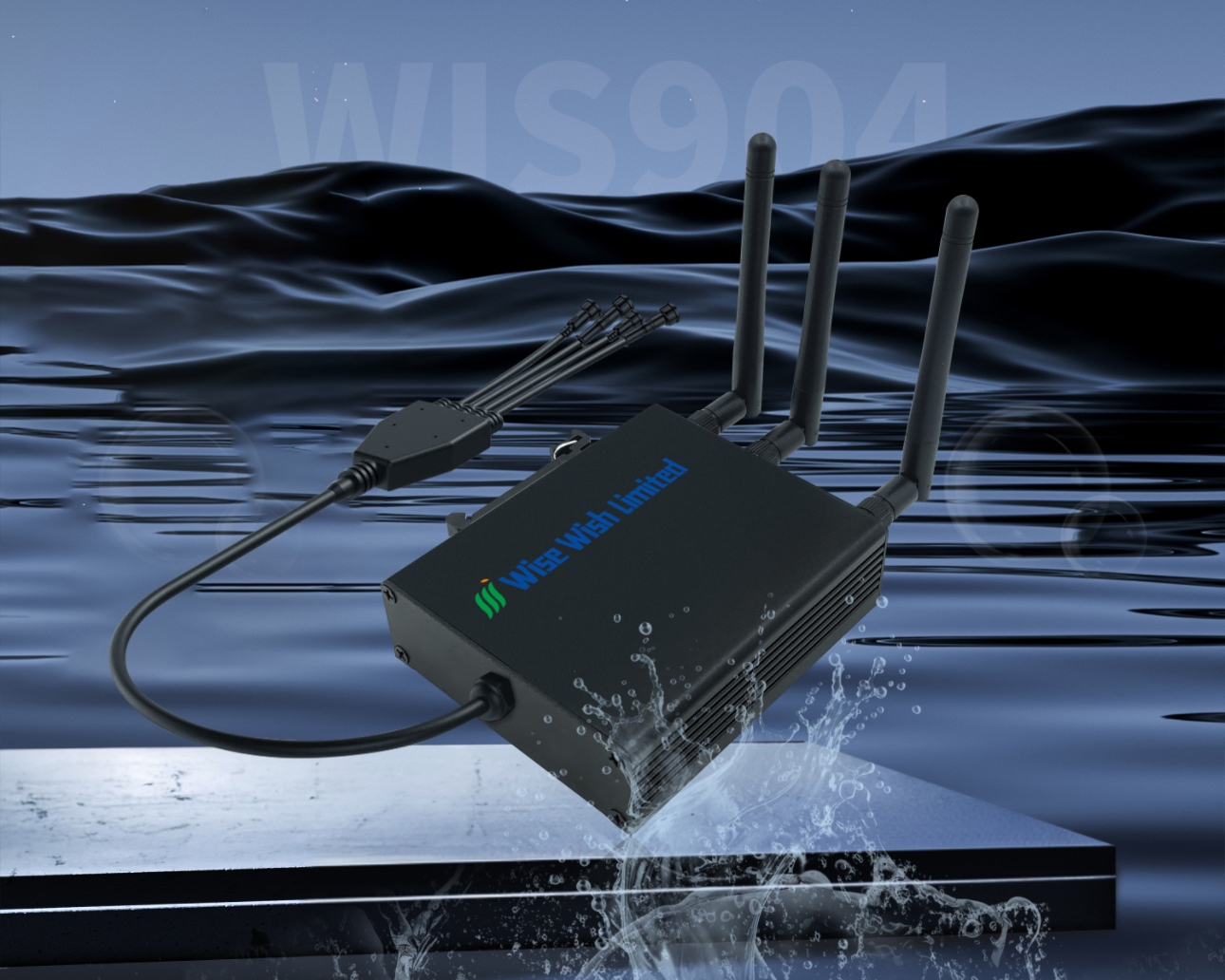
Waterproof 4G Industrial Router for Outdoor Use
In modern industrial and outdoor environments, reliable network connectivity is crucial. Traditional routers often face challenges in outdoor conditions, such as rain, dust, and extreme temperatures. To address these issues, Shenzhen Huizhi Technology has introduced a waterproof 4G industrial router, making it an ideal choice for outdoor use.

Importance of Waterproofing for Routers
Outdoor routers must withstand various harsh environmental conditions that can significantly impact their performance and lifespan. Rain and high humidity can lead to internal short circuits or corrosion, affecting the router’s functionality. Dust and sand carried by the wind may enter the device, causing mechanical wear or blocking heat dissipation channels. Additionally, extreme temperatures can damage electronic components, affecting long-term stability. In coastal or chemical plant environments, salt spray and chemical corrosion pose severe durability challenges. Therefore, waterproof and dustproof features are essential to ensure continuous and efficient operation in these harsh conditions.
Product Design Features
Sealed Enclosure
Our waterproof 4G industrial router features a sealed enclosure made from high-quality materials to ensure its protective capabilities. The enclosure is typically constructed from durable, corrosion-resistant metal or high-strength plastic, capable of withstanding physical impacts and chemical corrosion. The sealing design is achieved through precision manufacturing and high-quality gaskets, effectively preventing moisture and dust from entering the device. This design not only enhances the durability of the equipment but also reduces the risk of failures due to environmental factors.
Waterproof External Cables
To further enhance protection, our 4G waterproof router is equipped with specially designed waterproof external cables. These cables are made from weather-resistant materials that can withstand rain, moisture, and extreme temperature changes. Additionally, the connectors are equipped with special sealing joints to ensure that no moisture penetrates at connection points. This design not only guarantees stable data transmission but also reduces maintenance needs due to cable damage.
IP54 Protection Rating
The IP54 rating is a crucial standard for measuring a device’s protective capabilities. IP54 indicates that the device can effectively prevent limited amounts of dust ingress and resist water splashes from any direction. Specifically, the “5” denotes partial protection against dust; while it cannot completely prevent dust entry, the amount is insufficient to impact normal operation. The “4” signifies protection against water splashes from all directions. This rating is suitable for most outdoor applications, ensuring that the device continues to function normally in rainy or dusty environments.
Ventilation and Heat Dissipation
Despite needing to be sealed, the router must effectively dissipate heat to avoid performance degradation or damage due to overheating. To achieve this, routers typically employ passive cooling designs that use conductive materials to transfer internal heat to the enclosure, which is then dissipated into the air through natural convection. Some models may also integrate innovative heat sink designs that are often molded with the enclosure to maximize cooling efficiency without compromising waterproof performance.
Performance in Adverse Conditions
Stable Connectivity
Maintaining stable network connectivity in adverse weather conditions such as heavy rain, strong winds, or high humidity is crucial. The waterproof 4G industrial router uses advanced design and technology to provide reliable data transmission under these conditions. This stability is vital for real-time monitoring, remote operations, and emergency communication systems. For example, in remote areas conducting environmental monitoring, stable connectivity ensures uninterrupted data transmission to central servers, supporting timely decision-making.
Durability and Longevity
Waterproof features not only enhance performance in harsh environments but also significantly extend the device’s lifespan. By using durable materials and precise manufacturing processes, these routers can withstand prolonged exposure to severe conditions. Many models undergo rigorous industrial standard tests, including impact resistance, vibration resistance, and corrosion resistance tests, ensuring reliable operation under extreme conditions. Moreover, due to their robust design and high-quality components, these routers typically require less maintenance, reducing overall ownership costs. This durability is particularly critical for scenarios requiring long-term deployment without frequent equipment replacement, such as remote infrastructure monitoring.
Conclusion
In summary, waterproof features are key factors in enhancing the performance and reliability of outdoor 4G industrial routers. When selecting routers suitable for harsh environments, these characteristics deserve special attention. Whether used for industrial applications or other outdoor scenarios, these devices provide lasting and stable network connectivity.